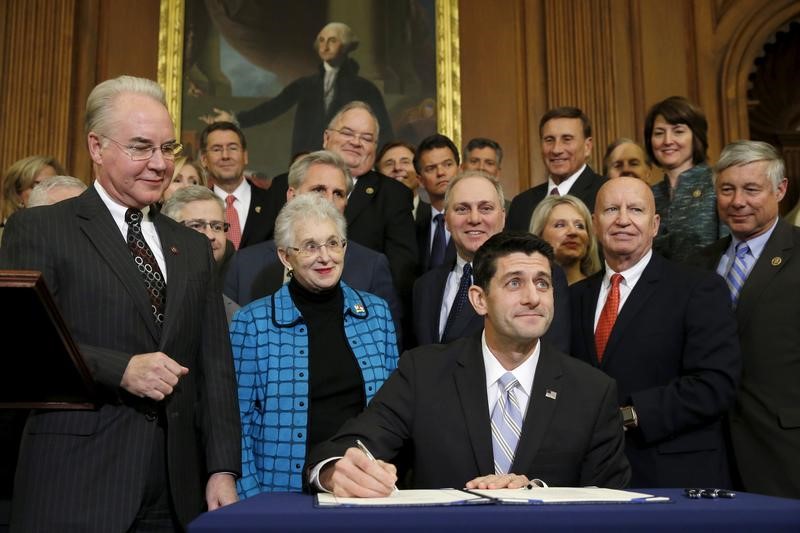By Robin Respaut
SAN FRANCISCO (Reuters) - The Republican-proposed bill to replace Obamacare would be a credit negative for U.S. states, according to Moody's Investors Service, because it would shift a greater share of the cost of Medicaid to the states.
The bill, known as the American Health Care Act, aims to replace the Affordable Care Act, commonly known as Obamacare.
The bill proposes to shift federal funding for Medicaid, the government insurance program for the poor, from a state-match to a per capita cap, resulting in a greater financial burden on states, Moody's reported.
The proposal would also phase out funding for expanded Medicaid by 2020, leaving states to pick up the difference or to drop enrollees from their Medicaid programs.
The Congressional Budget Office estimated the proposed reform would cut federal spending by $880 billion between 2017 and 2026, reaching a 25 percent lower level by 2026 compared to current-law projections.
"States will face difficult decisions in this regard," Moody's reported on Friday. "If states maintain the expansion programs for non-elderly adults with incomes up to 138 percent of the federal poverty level, they will be on the hook for a larger portion of expenses related to new enrollees."

Already, state Medicaid spending is expected to consume a larger portion of state revenues, growing by 28 percent of tax revenue by 2025, up from 24.5 percent in 2017, the rating agency estimated.